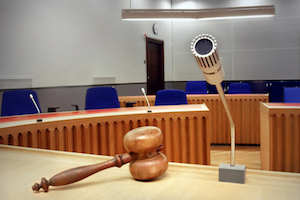In response to lobbying by the insurance and medical industries, many states have adopted laws that make it more difficult to find expert witnesses who are permitted to testify in medical malpractice cases. Doctors who clearly have the expertise required to offer an informed opinion are precluded from testifying based on arbitrary criteria imposed by legislators who want to protect negligent doctors and their insurers from the consequences of malpractice.
Tennessee is one such state. Among other restrictions, Tennessee requires a liability expert in a medical malpractice case to have been licensed to practice and to have actually practiced medicine in Tennessee or a contiguous state during the year prior to the act that caused the patient’s injury.
Whether the licensing requirements applies to a doctor who is authorized to practice, and actually practicing, in Tennessee but exempt from licensing laws was the issue in Young v. Frist Cardiology. The Tennessee Supreme Court construed state law to require expert witnesses to be licensed even when they are authorized to practice without a license.
The Locality Rule in Malpractice Cases
In the nineteenth century, many states adopted the locality rule “to protect rural physicians from being held to the same standards as physicians working in urban areas or at academic institutions.” The locality rule requires juries to determine the standard of care in the locality where the defendant physician committed the allegedly negligent act.
Does the standard of care for treating a patient in Tennessee differs from the standard of care in Florida? There is no reason that it should, but parochial legislatures and courts are slow to recognize the need to bring the law into the current century.
The locality rule has no obvious value in the age of the internet. Rural doctors now have just as much access to modern medical techniques as urban doctors. Yet many states stubbornly cling to the antiquated rule. The Tennessee Code, for example, requires plaintiffs to prove the standard of care “in the community in which the defendant practices or in a similar community.”
The Tennessee Supreme Court has recognized the sensibility of using a national standard of care in the modern age. It has nevertheless deferred to the legislature’s 1975 adoption of the locality rule.
The locality rule restricts the range of expert witnesses who would otherwise be available to testify for the injured patient. A physician in Atlanta might be eminently qualified to testify about the appropriate standard of care for treating a health condition, but unfamiliarity with the standards followed by doctors in a small Tennessee town in which the defendant physician practiced might preclude the expert from testifying. Making it difficult to find expert witnesses is exactly the reason that laws like Tennessee’s are championed by the insurance industry.
The “Licensed to Practice” Rule
Randall Young had a procedure to correct an abnormal heart rhythm. He died from a stroke two days later. His estate sued the surgeon, alleging that the procedure should not have been performed on a patient in Young’s condition and that the surgeon failed to evaluate and monitor Young’s condition before and during surgery.
In compliance with a case management order, Young’s estate identified Dr. Jason A. Rytlewski as an expert witness who would testify about the surgeon’s deviation from the applicable standard of care. Dr. Rytlewski was an electrophysiology fellow with the Division of Cardiology at Vanderbilt University School of Medicine. There was no doubt that he had actual knowledge of the applicable standard of arrhythmia care in Nashville, where the surgery occurred.
Unfortunately, actual qualifications often give way to the artificial qualifications imposed by legislatures. The surgeon’s insurer argued that Dr. Rytlewski could not give admissible expert testimony because he was not licensed to practice in Tennessee or a contiguous state.
Young’s estate offered evidence that Dr. Rytlewski was licensed to practice in six states and had engaged in the practice of medicine in Tennessee during the year before Young’s death. The estate also noted that the Tennessee Board of Medical Examiners had granted Dr. Rytlewski the right to practice medicine in Tennessee during his appointment at Vanderbilt. The estate argued that the licensing requirement applies only to experts who must be licensed, not to experts who are exempt from the state’s licensing law.
Appellate Decision
Notwithstanding Dr. Rytlewsksi’s exemplary qualification to act as an expert witness, the Tennessee Supreme Court decided that the legislature meant for expert witnesses to be licensed to practice, not simply allowed to practice. Of course, a license to practice allows the licensee to practice, so the distinction between being “licensed” and “allowed” to practice has no practical bearing on the expert’s qualifications.
The relevant statute applies to a “person in a health care profession requiring licensure under the laws of this state.” Although Dr. Rytlewski did not require licensure to practice in Tennessee, the court concluded that the legislature meant the words “requiring licensure” to modify the term “profession” rather than “person.”
Nothing in the structure of the sentence or ordinary rules of grammar compels that conclusion. The court’s claim that “requiring licensure” modifies the three preceding words (“health care profession”) rather than the six preceding words (“person in a health care profession”) is unsupported by precedent, grammatical rules, or logic.
The legislature’s actual purpose in enacting the law might have been to shield the medical industry from liability for negligence, but its stated purpose was to assure that expert witnesses are qualified. Reading the statute to apply only to persons who require licensure would serve that purpose and avoid the injustice of disqualifying experts who do not require licensure but are authorized to practice medicine in Tennessee.
Finding a doctor who is willing to testify against another doctor is extraordinarily difficult. Finding a doctor who is willing to testify against another doctor who practices in the same geographical area can be impossible. Legislatures that want to shield negligent doctors from liability take advantage of that difficulty by excluding eminently qualified experts who are not locally licensed. The Tennessee legislature’s rules have nothing to do with justice. Unfortunately, the Tennessee Supreme Court perpetuated injustice by its doubtful reading of the Tennessee statute regarding the licensure of expert witnesses.











